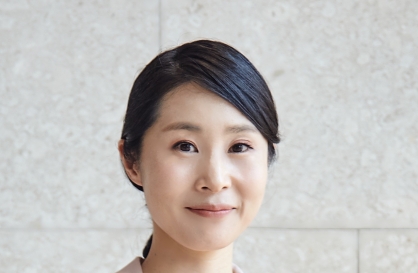Most Popular
Reading Korea Through Books
-
1
K-dramas and movies through Japanese eyes

-
2
SayNo's advice inspires with candid, realistic message

-
3
Peers' admiration, big office job, house in Seoul: A dream or source of heartache?

-
4
[Reading Korea through books] Contemplating death: observations from hospital beds offer what death means to Koreans
![[Reading Korea through books] Contemplating death: observations from hospital beds offer what death means to Koreans](//res.heraldm.com/phpwas/restmb_idxmake.php?idx=644&simg=/content/image/2022/10/13/20221013000723_0.jpg&u=20221015213958)
[Reading Korea Through Books] Peers' admiration, big office job, house in Seoul: A dream or source of heartache?
By Park Ga-youngPublished : Feb. 1, 2023 - 01:43

"Tale of Department Head Kim at a Conglomerate Who Owns a House in Seoul" by first-time writer Song Hee-koo is a three-volume series about characters who work at a large conglomerate in Seoul. The last of the series hit local bookshelves in November 2021.
The title may raise questions about the "ideal" image of a middle-class worker in South Korea. It would be someone who owns a house -- preferably in Seoul -- and works at a big company like Samsung, LG or SK and ultimately becomes a department head who sits on the executive board.
That’s one of them, at least.
A survey by HN Investment and Securities revealed what people think constitutes a “middle-class” household. For many, the definition of middle class is a family of four earning an average 6.86 million won ($5,500) a month and spending 4.27 million won of that, with total assets of 940 million won and property worth 840 million won.
“Tale of Department Head Kim at a Conglomerate Who Owns a House in Seoul” came out in 2021 as the prices of seemingly everything -- be it stocks, property or cryptocurrencies -- were going up. Suddenly everyone was talking about real estate. This phenomenon lasted throughout 2020 and 2021, until the property and stock markets began tumbling early last year.
The first volume of the trilogy follows Kim, who is overconfident and pays a lot of attention to what other people think about him. He feels jealous when he sees his younger colleagues' cars are imports. On the other hand, he cares little for his subordinates when it comes to work, disregarding reports from the youngest employee. Ultimately, his mindset catches up to him and he is let go for lacking team spirit.
The book shows how individuals deal with the situations they face at work, offering realistic characters in even more realistic settings.
The story follows Kim as he pours his retirement package into a newly built property soon after being laid off. Lured in by the possibility of renting it out to Starbucks, he is ecstatic about the idea of having a secure monthly income from such a highly sought-after renter.
However, as is the case for many South Koreans searching for post-retirement security, he is cheated out of his plan. His failure echoes the struggles of retired Koreans who resort to opening a convenience store or fried chicken franchise. The keen understanding of how financially bleak life after retirement can become is the underlying theme in this story.
“Department ead Kim and other people in similar positions, you could say, are successful beyond the middle class. I wanted to pull back the curtain and show the problems these seemingly well-off people like Kim have," the author told The Korea Herald in a recent interview.
Members of the older generation valued the pursuit of society's standards and constantly compared themselves with others. But now, they are left suffering with a sense of inferiority, Song said. “What they face in the end often is quite tragic,” he added.
The country’s younger generations are not free of constant comparison with others either, which is well described in the second book that follows an assistant manager who pursues a life of immediate satisfaction under the popular catchphrase “YOLO,” shorthand for “You only live once.”
"Now people are swamped with information and seeing what other people have, and they try to mimic it," he noted.
While comparing ourselves to others is part of human nature, whether or not we decide to become cynical or negative is an individual choice, he said.
"Some just give up (on the idea of saving) amid soaring property prices, turning instead toward more affordable overconsumption to ease their feelings of deprivation. In addition, some lose patience and seek a quick return on more short-term investments," the 38-year-old author said.

It comes as no surprise that many readers confess the characters in the book sound very familiar. The author works at a major conglomerate and said he wrote the characters based on colleagues, as well as himself.
The last book in the series follows a general manager surnamed Song, who had already secured “financial freedom” by investing in land in his 20s. The character is more than 95 percent based on the author himself. He wrote that he wanted to get out of poverty and observed a good friend of his father suddenly becoming "rich" thanks to a piece of land he owned.
Ultimately the book offers a chance to reflect on what it means to be a father, mother, son or daughter living in South Korea today. Some people see their fathers in this book, who after years of hard work are left with an uncertain post-retirement life.
“I really hate Department Head Kim, but at the same time I feel uncomfortable because he really resembles me,” one review on the Kyobo Bookstore website reads.
Another review says, “I picked up this book for some investment techniques. But the man who neglects his family, devotes himself to his work and always thinks he is right resembles my father. In a way, he seemed to represent my father's time. I felt for them … I regret that I never hugged my father when he came back home from work looking tired.”
"Some of the most common comments I receive are that Kim seems like their father or that they have lived like Kim," Song said. "While portraying characters realistically, I hoped that people working day in and day out will realize there is something beyond what you see from the outside and the need to prepare for life after retirement.”






![[Exclusive] Hyundai Mobis eyes closer ties with BYD](http://res.heraldm.com/phpwas/restmb_idxmake.php?idx=644&simg=/content/image/2024/11/25/20241125050044_0.jpg&u=)
![[Herald Review] 'Gangnam B-Side' combines social realism with masterful suspense, performance](http://res.heraldm.com/phpwas/restmb_idxmake.php?idx=644&simg=/content/image/2024/11/25/20241125050072_0.jpg&u=)

![[Herald Interview] 'Trump will use tariffs as first line of defense for American manufacturing'](http://res.heraldm.com/phpwas/restmb_idxmake.php?idx=644&simg=/content/image/2024/11/26/20241126050017_0.jpg&u=20241126161719)




![[Reading Korea through books] Contemplating death: observations from hospital beds offer what death means to Koreans](http://res.heraldm.com/phpwas/restmb_idxmake.php?idx=644&simg=/content/image/2022/10/13/20221013000723_0.jpg&u=20221015213958)







![[Today’s K-pop] BTS’ Jin single hits Billboard’s Hot 100 at No. 53](http://res.heraldm.com/phpwas/restmb_idxmake.php?idx=642&simg=/content/image/2024/11/26/20241126050076_0.jpg&u=)